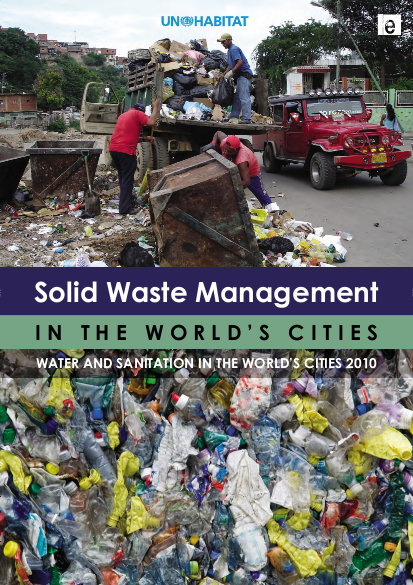
Of the many common threads that bind cities across the world, waste handling, is possibly one of the strongest. Regardless of the context, waste, directly and indirectly, is one of biggest challenges of the urban world. It’s also a city’s calling card. If a city is dirty, the local administration is written off as ineffective. If not, governance is presumed in the public eye to be effective. This Third Global Report acknowledges escalating challenges without boundaries. Yet, it is not prescriptive – that would go against its fundamental premise in highlighting the value of local innovation and knowledge. What it seeks to do instead is to follow another one of the beliefs that it lays out: to build capacity through networking. The contributors have dug out vast amounts of knowledge and experience, and distilled it in this volume. Most readers might never travel to all of the 22 diverse cities upon which this Global Report is based. Yet, they will have access to real experiences of people working on the ground. Indeed, this is an entirely new kind of networking: that of ideas. Perhaps reading about what one city has been able to do will light up an idea in another.
Resource collections
- Accountability to affected populations (AAP)
- UN Habitat - Urban Response Collection
- Urban Response - Urban Crisis Preparedness and Risk Reduction
- Urban Response Collection - Community Engagement and Social Cohesion
- Urban Response Collection - Economic Recovery
- Urban Response Collection - Environment and Climate Change
- Urban Response Collection - Housing, Land and Property
- Urban Response Collection - Urban Crisis Response, Recovery and Reconstruction
- Urban Response Collection - Urban Resilience